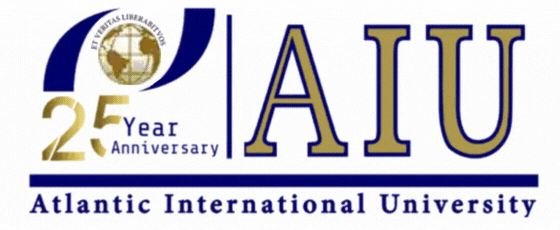In the ongoing battle against land imbalances and gender disparities in land ownership, one AIU student stands out for his exceptional contributions to land management in his home country. Luke Mapiliyao, a dedicated professional in the Ministry of Lands, has been working tirelessly to ensure that resettled farmers have access to secure land tenure, which in turn promotes sustainable livelihoods, increased productivity, and long-term economic empowerment.

Luke’s work and transformational leadership in agriculture has focused on addressing critical land management issues such as land security, the issuance of land permits, and the protection of farmers’ rights. His efforts have proven vital in supporting farmers who, for too long, have faced instability and uncertainty due to lack of proper documentation regarding their land. Through his innovative approach to land management, Luke is playing an essential role in transforming agricultural practices and alleviating poverty in resettled communities.
A Personal Commitment to Land Security
Luke’s journey into land management began with a personal realization of the vast inequalities that exist in land distribution. As a young professional joining the Ministry of Lands, he quickly identified the imbalance between land ownership and access, which significantly impacts many communities, particularly in rural areas. He recognized that land is not only a vital resource for food production but also a powerful tool for reducing poverty and enhancing economic independence.
His passion for land security and its connection to improved livelihoods grew stronger over time, particularly after witnessing the hardships faced by resettled farmers. He saw how many farmers, despite their hard work and dedication, struggled to maintain their land or faced the constant threat of eviction. This motivated him to focus on securing their land tenure rights, empowering them to take full control of their agricultural production without fear.
The Role of Security of Tenure Documents
At the core of Luke’s work lies the issuance of security of tenure documents, which include land leases, permits, and title deeds. These documents serve as proof of land ownership and are vital for farmers to maintain their right to use, develop, and manage their land. Without these legal documents, farmers are often vulnerable to displacement or exploitation, which prevents them from investing in their land and improving their productivity.
Luke’s team has been instrumental in accelerating the process of issuing these important documents to resettled farmers. Through a transparent, fair, and accountable approach, Luke and his colleagues have ensured that farmers are granted the legal right to occupy and utilize the land they’ve been allocated. This, in turn, has created a sense of security and stability within these farming communities.
Empowering Farmers with Legal Land Rights
The importance of legal land rights for resettled farmers cannot be overstated, and Luke is fully aware of the impact it has on the lives of resettled farmers. By securing their land tenure, these farmers are now able to operate without the constant fear of losing their land, which enables them to focus on long-term agricultural production.
One of the key outcomes of Luke’s efforts is the ability of farmers to access financial resources to invest in their land. With secured tenure documents, farmers can use their land as collateral to secure loans from financial institutions. This opens up new opportunities for farmers to purchase equipment, invest in better seeds and fertilizers, and improve the infrastructure of their farms. This kind of financial support is essential for increasing agricultural productivity and boosting overall economic growth in rural communities.
The Impact of Title Survey Maps
In addition to issuing tenure documents, Luke’s team has also worked on the development and production of accurate title survey maps. These maps provide precise coordinates and boundaries of the allocated land, which is essential for preventing land disputes and ensuring the accuracy of land ownership records.
Survey maps help in mitigating conflicts between farmers, empowering farmers through education and encouraging neighboring landowners by clearly defining the limits of their respective properties. Furthermore, the maps ensure that landholders are not at risk of encroachment, as the exact coordinates of their land are legally documented. This level of clarity enhances farmers’ confidence in their land tenure, encouraging them to invest in sustainable farming practices without the fear of future eviction.
Promoting Fairness, Integrity, and Transparency
Luke places a strong emphasis on fairness, integrity, and transparency in all aspects of his work. He believes that these values are essential in ensuring that land tenure processes are conducted ethically and that farmers receive the support they need. Through his leadership, Luke has helped establish clear protocols and procedures that guarantee accountability at every stage of the land allocation and document issuance process.
By ensuring fairness, he has ensured that resettled farmers—regardless of their background or gender—have equal access to land tenure documents. This commitment to equity is particularly important in a country where gender disparities often prevent women from accessing and owning land. Luke’s work has gone a long way in addressing these issues, providing women with a greater sense of empowerment and control over their land.
Conclusion: A Legacy of Empowerment
Luke Mapiliyao’s journey in sustainable land management practices and overall land management is a testament to the power of dedicated professionals working to create lasting change in their communities. His efforts to secure land tenure for resettled farmers are a vital part of the broader movement to improve agricultural practices and alleviate poverty in rural areas.
Thanks to his tireless dedication and commitment to fairness, transparency, and accountability, resettled farmers are now reaping the rewards of secure land tenure, which provides them with the stability and resources necessary to thrive. Luke’s work has not only improved the livelihoods of countless farmers but has also contributed to the overall economic growth of the region.

Luke’s story revolves around community-driven land reforms and it is one of the best examples of perseverance and hope, serving as an inspiration to other young professionals and students at AIU and beyond. His work is a shining example of how the right to land can transform lives, empower communities, and create a more equitable society for all. Whether you’re passionate about land management, social justice, or sustainable development, AIU provides the platform and resources you need to turn your vision into action.
Join AIU today and be part of a transformative journey that will equip you with the knowledge, skills, and network to shape a better future for all.



























